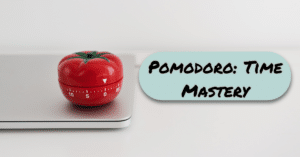Time management is a critical skill for busy professionals who juggle multiple responsibilities and strive for success in their careers. Effectively managing time can make the difference between feeling overwhelmed and being productive and fulfilled. However, mastering the art of time management is easier said than done. It requires a combination of practical strategies, self-discipline, and a clear understanding of priorities. In this post, we will explore useful tips and techniques that busy professionals can implement to enhance their time management skills. By implementing these strategies, you can regain control over your schedule, increase productivity, and achieve a better work-life balance.

Prioritize Your Tasks: The Key to Effective Time Management
Prioritizing your tasks is the key to effective time management. With a multitude of responsibilities vying for your attention, it’s crucial to identify and focus on the most critical and urgent tasks first. Start by assessing the significance and impact of each task, considering deadlines and project objectives. By prioritizing tasks, you can allocate your time and energy wisely, ensuring that you tackle the most crucial assignments without becoming overwhelmed. Remember, effective time management isn’t about doing everything; it’s about doing the right things at the right time. By mastering the skill of prioritization, you can increase your productivity, accomplish more meaningful work, and experience a greater sense of control over your professional life.
Set Clear Goals and Deadlines: A Roadmap for Success

Setting clear goals and deadlines is essential for effective time management and acts as a roadmap for success. When you have a clear vision of what you want to achieve, it becomes easier to prioritize tasks and allocate your time accordingly. Start by defining specific and measurable goals that align with your overall objectives. Break them down into smaller, actionable steps, and assign realistic deadlines to each task. By establishing these clear goals and deadlines, you create a sense of urgency and direction, enabling you to stay focused and motivated. Additionally, regularly reviewing and reassessing your goals allows you to track your progress and make necessary adjustments along the way. With a well-defined roadmap in place, you can optimize your time, work towards meaningful milestones, and ultimately achieve greater success in your professional endeavors.
Define SMART Goals: Specific, Measurable, Attainable, Relevant, Time-Bound
Setting SMART goals is a crucial aspect of effective time management. SMART is an acronym that stands for Specific, Measurable, Attainable, Relevant, and Time-Bound. When defining your goals, it’s important to make them specific and clearly defined. Avoid vague or generalized statements and instead focus on creating actionable objectives. Additionally, make sure your goals are measurable, meaning you can track and evaluate progress. This allows you to stay motivated and see the tangible results of your efforts. Setting attainable goals is essential for maintaining a sense of accomplishment and avoiding overwhelm. Your goals should be challenging but realistic, taking into account your available resources and capabilities. Furthermore, ensure that your goals are relevant to your overall vision and align with your values and priorities. Finally, set time-bound goals by establishing clear deadlines. This provides a sense of urgency and helps you stay focused and accountable. By following the SMART goal-setting framework, you can create a roadmap for success and optimize your time management efforts.

Break Down Goals into Actionable Steps: Creating a Clear Path to Success
Breaking down goals into actionable steps is a powerful strategy for effective time management. Rather than tackling large, intimidating goals all at once, breaking them down into smaller, manageable tasks can make them more approachable. Start by identifying the specific actions required to achieve each goal. Then, create a list of actionable steps that will move you closer to your desired outcome. Use bullet points to outline these steps, providing clarity and structure. By breaking down your goals into actionable steps, you create a clear path to success and minimize the chances of feeling overwhelmed. As you complete each step, check them off your list, giving you a sense of progress and accomplishment. Embrace the power of breaking down your goals into smaller tasks, and you’ll find yourself moving steadily toward your objectives with improved time management.
Establish Realistic Deadlines: Balancing Ambition with Practicality
Establishing realistic deadlines is crucial for effective time management. While it’s important to challenge yourself and set ambitious goals, it’s equally important to be practical and consider your available time and resources. When setting deadlines, assess the complexity and scope of the tasks involved. Break them down into smaller sub-tasks if needed, and allocate appropriate time for each. Be mindful of external factors and potential obstacles that may affect your progress. Setting overly optimistic deadlines can lead to stress, burnout, and compromised quality of work. On the other hand, excessively lenient deadlines can result in procrastination and diminished productivity. Strive to strike a balance between ambition and practicality, allowing yourself enough time to complete tasks effectively without unnecessary pressure. Consider using a table to visualize your deadlines, listing the tasks, corresponding deadlines, and progress status. By establishing realistic deadlines, you can better manage your time, maintain a steady pace, and achieve success more sustainably.
Delegate and Outsource: Maximizing Efficiency in the Workplace

Delegating and outsourcing tasks is a powerful strategy for maximizing efficiency in the workplace. As a busy professional, it’s important to recognize that you can’t do everything on your own. By delegating tasks to capable team members or outsourcing certain responsibilities to external resources, you free up valuable time and energy to focus on high-priority tasks that require your expertise. Start by identifying tasks that can be effectively handled by others, considering their skills and availability. Communicate your expectations and provide the necessary guidance to ensure successful outcomes. Delegating and outsourcing not only increase efficiency but also promote collaboration and empower your team members or external partners. By leveraging the strengths of others and distributing the workload effectively, you can achieve greater productivity, accomplish more in less time, and foster a more streamlined and successful work environment.
Harness the Power of Technology: Tools for Streamlined Time Management
Harnessing the power of technology is essential for streamlined time management in today’s digital age. With the abundance of productivity tools and apps available, professionals have access to a wide range of resources that can significantly enhance their efficiency. From project management platforms to task-tracking apps and calendar scheduling tools, technology offers solutions for organizing, prioritizing, and managing time effectively. These tools help streamline workflows, automate repetitive tasks, and provide reminders and notifications to keep you on track. Additionally, cloud storage and collaboration platforms enable seamless communication and document sharing, fostering productivity and teamwork. By embracing technology and leveraging the right tools, you can optimize your time management practices, stay organized, and make the most of every minute in your busy professional life.

Task Management Tools: Stay Organized and Efficient
Task management tools are invaluable resources for staying organized and efficient in today’s fast-paced work environment. These tools offer a centralized platform to track, prioritize, and manage your tasks effectively. With features like task lists, due dates, and progress tracking, they provide a visual overview of your workload and help you stay on top of your responsibilities. Some popular task management tools include:
- Todoist: A versatile and user-friendly task management tool for creating, organizing, and collaborating on tasks with deadlines.
- Trello: A flexible and customizable tool that visually represents tasks and workflows using boards and cards, perfect for team collaboration.
- Asana: A powerful task management tool with features like project tracking, task assignments, and communication tools.
By utilizing these task management tools, you can streamline your workflow, prioritize tasks effectively, and ensure that nothing falls through the cracks. Consider using a table to create a visual representation of your tasks, deadlines, and progress status. Embrace the power of task management tools to enhance your time management practices and boost your overall productivity.
Time Tracking and Pomodoro Technique Apps: Enhance Focus and Productivity
Time tracking and Pomodoro technique apps are excellent tools for enhancing focus and productivity. Time-tracking apps help you monitor the amount of time spent on different tasks, providing insights into your productivity patterns and identifying areas for improvement. These apps often come with features like timers, reports, and analytics to help you analyze and optimize your time usage. Some popular time-tracking apps include:
- Toggl: A robust app for tracking time spent on activities and projects, offering detailed reports and analysis.
- RescueTime: An automatic time-tracking app that provides data on your website and application usage, running in the background.
- Forest: A unique, gamified app that combines time tracking with a focus-oriented approach, using virtual trees to discourage distractions.
On the other hand, Pomodoro technique apps help you implement the Pomodoro technique, a time management method that involves working in focused intervals, typically 25 minutes, followed by short breaks. These apps often include timers, customizable work, and break durations, and progress-tracking features. Some popular Pomodoro technique apps include:
- Focus@Will: An app that provides curated music tracks and timers to help you stay focused and in the flow during work sessions.
- Be Focused: A simple and customizable Pomodoro timer app that allows you to adjust work and break durations according to your preferences.
By incorporating time tracking and Pomodoro technique apps into your time management routine, you can enhance your focus, maintain productivity, and make the most of your work sessions. Experiment with different apps and find the ones that best suit your needs and preferences.
Reflect and Adapt: Continuously Improving Your Time Management Skills

Reflecting and adapting are essential practices for continuously improving your time management skills. It’s not enough to implement time management strategies and techniques; you also need to regularly evaluate and adjust your approach. Take time to reflect on your current practices and assess what’s working well and what needs improvement. Consider questions such as: Are you effectively prioritizing tasks? Are you allocating your time in alignment with your goals? Are there any recurring obstacles or time wasters that you can address? Once you identify areas for improvement, adapt your time management methods accordingly. This could involve experimenting with new techniques, incorporating feedback from colleagues or mentors, or seeking professional development opportunities. By embracing a mindset of continuous improvement and actively refining your time management skills, you can optimize your productivity, overcome challenges, and achieve greater success in managing your time effectively.
Conclusion

In today’s fast-paced and demanding professional world, mastering the art of time management is essential for busy professionals. This post explored practical tips for professionals to optimize time and boost productivity, including setting goals, time-blocking, and reducing distractions. By implementing these strategies and adapting as needed, you can regain control, increase efficiency, and achieve work-life balance. With the right mindset and commitment, you can become a time management master and unlock your full potential in all areas of life.












